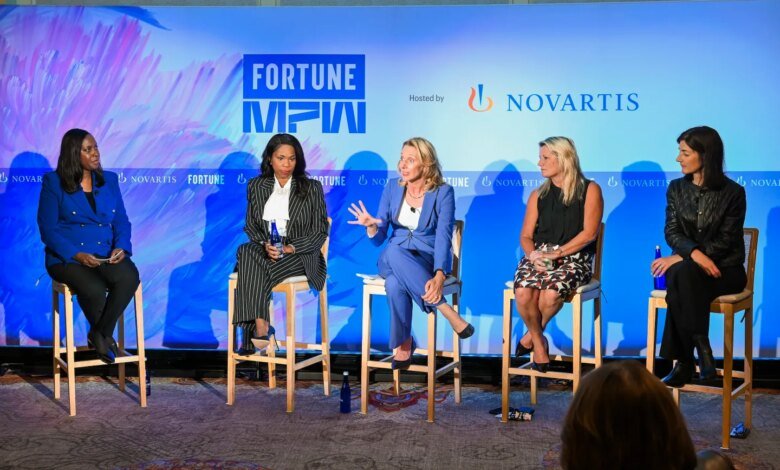CEO says she’d welcome an AI-bot board member: ‘If you don’t have an AI agent in every meeting, you’re missing out’

In an ever-changing world of US tariffs, changing trade policies, and rising geopolitical tensions, companies are forced to make decisions at a rapid pace. AI is here to help: simplifying some productivity and allowing companies and their leaders to collect and summarize information at a faster clip.
That’s why Hanneke Faber, CEO of global technology manufacturer Logitech, said she would be open to the idea of having an AI board member.
“We are already using [AI agents] “At almost every meeting,” Faber said at the Fortune Most Powerful Women Summit in Washington, D.C., on Monday.
While she said today’s AI agents (such as Microsoft Copilot and indoor robots) are mostly concerned with summarizing and generating ideas, this is likely to change due to the pace at which the technology is evolving.
“As they evolve — and some of the best agents or assistants we’ve built do things themselves — that comes with a whole bunch of governance stuff,” Faber said. “You have to be mindful and make sure that you really want that bot to take action. But if you don’t have an AI agent in every meeting, you’re going to lose some productivity.”
“This robot, in real time, has access to everything,” she continued.
Reshima Kemps-Polanco, executive vice president and chief commercial officer at global pharmaceutical company Novartis, said she is training an artificial intelligence robot to help manage a “very rigorous commercial launch.” The robot is being trained to evaluate the team’s launch plan, and has become “smarter and smarter” at asking strategic questions, she said.
“They are trained to look for holes in the plan,” Kempes-Polanco said during a session titled “Anatomy of the Global Economy” presented by Novartis. “In some cases…I actually found two or three things that I might have missed, things that would add value.”
The importance of data
Other panelists noted that AI is only as good as the data it is trained on.
“Garbage in, garbage out,” said Andrea Callis, head of U.S. strategy and communications at global consulting firm Teneo. “We are essentially building artificial stakeholders to understand stakeholders” using artificial intelligence to obtain and understand data.
Obtaining and using the wrong data can be very costly, said Tracey Massey, chief operating officer at consumer intelligence company NIQ.
“It’s very important to have really good data,” she said. “Then you build analytics on top.”
However, this can be a challenge for small businesses with fewer resources that are still using legacy technology platforms to collect data. But even these companies have time to “catch up” given that AI is in its nascent stage, Massey said.
However, the “vast majority” of executive teams feel as though they are lagging behind in adopting AI, Teneo’s Callies said.
“Everyone feels like they are one step behind,” she noted. “Everyone feels like they’re chasing their peers, because it’s moving so fast.”
But Callies reminded the audience that AI development and adoption is still in the innings, to use a baseball analogy.
“We’re not just at halftime,” she said. “We’re in first place at bats, in the first inning.”
Don’t miss more hot News like this! Click here to discover the latest in Business news!
2025-10-13 21:50:00




